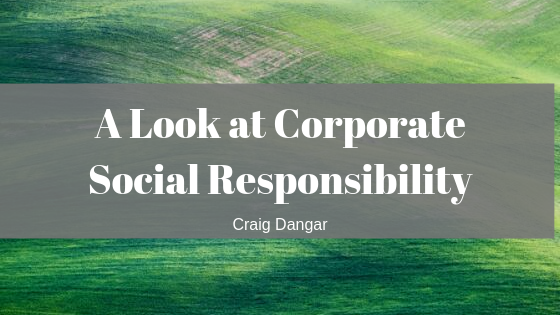The words corporate social responsibility (CSR) have garnered a great deal of attention in the past ten years. Social, economic and environmental issues have prompted corporations to do their part to be good citizens of our planet and forced them to be accountable. This strikes at the heart of consumers, which can be the deciding factor on which company to pledge their loyalty. There are many companies that use CSR as one of their core elements in their business models. However, with all the publicity, it is easy to lose sight of what CSR really means.
According to Business News Daily, CSR is an “evolving business practice that incorporates sustainable development into a company’s business model.” CSR can be seen as part of a branding or marketing strategy, which can lessen a company’s efforts. The public is wary about large corporations who have started to focus on CSR. However, the companies that have been implementing CSR into their business models for some time enjoy a healthy customer base. To break down CSR, we need to look at its four pillars.
- Environmental Sustainability Initiatives — the focus is on environmental issues, such as reducing pollution and greenhouse gases. For example, Burt’s Bees created the Greater Good Foundation, a non-profit dedicated to improving human and honeybee health.
- Donations to charities and organisations — the donations are time, money or resources directed toward global causes, such as clean water and human rights. Reynolds supports the United Way of the Capital Region as well as volunteers to build homes for homeless women and children through the Hummel Street Project in Pennsylvania (United States).
- Providing Fair Labor Practices – Ensures employees and the employees of vendors have fair working conditions as well as companies source fair-trade products. Starbucks is committed to using fair-trade coffee in partnership with Conservation International.
- Economic Responsibility – Focuses on businesses who employ sustainable practices for long-term growth. This is when companies balance their economic decisions and their effects on society. Not only does a company save money on manufacturing by using recycled materials in its products, but it also reduces the amount of trash on our planet. A great example is Parley x Adidas. In collaboration with Parley for the Oceans, Adidas has launched two shoes and apparel that are made with recycled materials. Each sneaker contains plastic from 11 bottles!
CSR has been adopted by many companies over the past twenty years. These practices form consumers’ perceptions, which can increase or decrease a company’s popularity. Overall, CSR is good for corporations since it holds them accountable and helps improve our planet.
Originally published at craigdangar.co on August 13, 2019.


